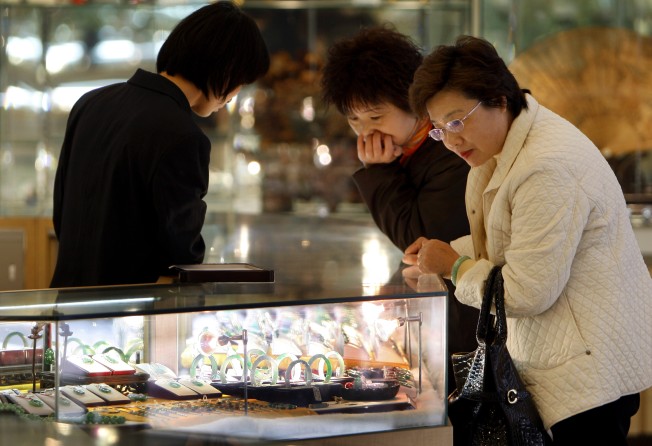Chinese court rejects family's right to treasures in their great-grandfather's tomb
Court prompts controversy by ruling that ancestors' Qing-dynasty relics belong to the state

A mainland court’s recent decision to deny two brothers the right to the treasures buried in their great-grandfather’s tomb, ruling that it was the nation’s property, has caused controversy over who rightly owns family artefacts.
The Zheng brothers from Baofeng county in Henan province wanted 32 pieces of grave artefacts, which were stolen by thieves then recovered by local police, to be returned to their family.
The treasures – dating back to the Qing dynasty (1644-1911), including jade bracelets and rings – had been kept by the Baofeng cultural relics bureau since April 2011.
These had been buried in their great-grandfather’s grave in the same county more than 80 years ago.
The local cultural relics bureau insisted that all remains under Chinese territory belonged to the state. The brothers argued that the tomb, including the trove buried in it, should be rightfully the descendants’.
However, the Intermediate People’s Court of Pingdingshan, a city that administers Baofeng, rejected the brothers’ claim yesterday and ruled that the goods belonged to the country, the Dahe Daily reports.
According to the Antiquities Act, all unearthed antiquities belong to the state. China’s Civil Law also states that grave goods would belong to the state if they are identified as cultural relics.
The Baofeng ruling has sparked controversy, with 88 per cent of people responding to an online poll saying they disagreed with the verdict, according to the survey by Sina, one of the mainland’s major news portals.
"What’s the difference between a state and the thieves if these treasures handed down from ancestors cannot be kept by the family?” one Weibo microblogger commented.
Others, however, supported the ruling, suggesting treasures of historical value should be kept out of private hands.
"Should we return all the sculptures of the Terracotta Army if the ancestors of Emperor Qin Shi Huang ask for them?”